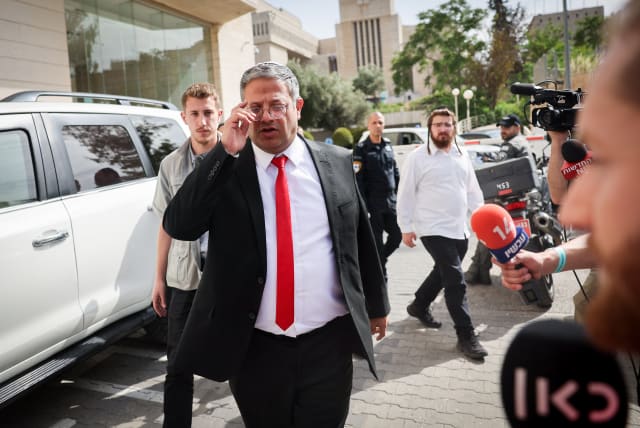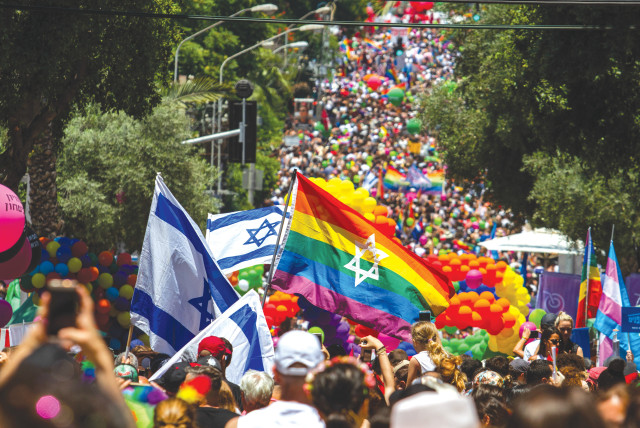Ben-Gvir demands answers from police on arrest of anti-LGBT haredi activist

Ben-Gvir criticized the police conduct after a haredi activist was preemptively arrested before the Tel Aviv pride march.
National Security Minister Itamar Ben-Gvir on Tuesday demanded clarifications from Israel Police regarding the reasons for the arrest of an anti-LGBT activist in Tel Aviv last Thursday, according to Walla.
In Ben-Gvir's letter to Israel Police Chief Kobi Shabtai and Tel Aviv District Commander Ami Eshed, he said that the police "violated freedom of expression" and that the activist was "falsely arrested."
"Apparently, this is a violation of the law and of freedom of expression. Also, this is an incident that goes against my policy, and against your assurances that you would allow freedom of expression to everybody. I request to receive clarifications by next Sunday," Ben-Gvir said.
Aharon Burstein, a haredi (ultra-Orthodox) man from Tel Aviv, has for years held a silent protest against the pride parade by holding an "I protest" sign and muttering psalms. He was arrested preemptively without a warrant or evidence that he posed a danger and released to house arrest until Saturday evening.
On Friday, a judge at the Tel Aviv Magistrate's Court criticized the conduct of the police and released him without conditions.

"I stood [there] every year and wanted to do so this year as well. I don't harm anybody and don't intend to do so. The marchers even congratulate me and say that this is how a protest should be. I'm just standing with a sign, that's all," Burstein explained.
Ben-Gvir warned against arresting protesters
Before the recent pride marches in Tel Aviv and Jerusalem, Ben-Gvir had stated: "I do not want anybody with a religious or haredi appearance to be stopped [by police]. This is not what is meant by freedom of speech and freedom of movement in the State of Israel."
Members of the LGBT community and their representatives expressed concern over the fact that Ben-Gvir, who has acted in the past against the LGBT community, was the minister responsible for the marcher's security.
Ben-Gvir at the time said that the "police's role above all is to secure and guard the marchers. At the same time, the police must do everything to allow the demonstrators against the parade to exercise their freedom of expression and freedom to protest."
"These are basic rights in a democracy and must be protected. People must not be turned away or detained solely because of their religious appearance or their intention is to demonstrate against the parade," Ben-Gvir said.
The national security minister also stressed, however, that his policy was to enable people to demonstrate against the march as well.
Eliav Breuer and Tzvi Joffre contributed to this story.
